CUBA con Y | home 
INTRO
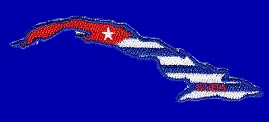 |
The Y Phenomenon
¡Ay, Cuba hermosa, primorosa, por qué sufres hoy tanto quebranto? Oh, lovely, delicate Cuba, why do you suffer such grief today? Thus begins the classic Lamento Cubano* (Cuban Lament) by Eliseo Grenet Sánchez. Composed in 1932, it has an eery, uncanny significance and resonance today. For five consecutive decades now, Cuba, the Pearl of the Caribbean, has been the sole possession, the pride and joy, of one Fidel Castro. Now, as physical and mental decadence overtake him, ownership of the island, or L'Île Maudite, as I like to call it, has been transferred to little brother Raúl, much like one would transfer ownership of a car or a house in a free society, and just as effortlessly. Only that, in Cuba's case, Little Brother is inheriting complete and total control over the lives of the more than 12 million people who inhabit L'Île Maudite, to do with as he pleases and to dictate their every move exactly in the same way big brother Fidel has ruled over their existence for the past 50 years.
|
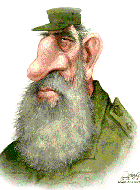 |
This, however, is not the issue at hand. We are not concerned in these pages with the ongoing dictatorship, its ramifications or its toll on the island and the Cuban people. Enough has been said and politicised about that. Rather, what concerns us here is what we have termed THE Y PHENOMENON: the proliferation of fictitious names beginning with the letter Y in modern Cuban society. Yet this abomination, this plethora of invented, cacophonous names, is a direct and distinct result of five decades of lives robbed of freedom, human rights, and the basic necessities of life such as food, shelter, and clothing.
|
 |
The Y PHENOMENON is therefore a true and authentic child of the revolution, and as such, it deserves a place in its history, and therefore cannot be explained or comprehended outside of this framework. We are neither etymologists nor sociologists. We are two average, run of the mill Cubans who had the good fortune of escaping the dictatorship as children because our parents had the intelligence to recognize the regime for what it was, and the fortitude to venture forth to a new land in search of basic freedoms. For this we thank them daily. It is not our intent to offer here a dissertation on what caused The Y Phenomenon or why, but rather to acknowledge that it indeed exists, and in overwhelming proportions, and to have a good laugh at the expense of these ridiculous, totally made up inventions which refuse to be classified or pigeonholed. These names cannot be deemed Spanish, for they are not proper Spanish in any way, shape or form, nor do they belong to any other recognizable language for that matter, because they are the purile inventions of fertile minds with too much time on their hands in an island where no one works for a living. They are an exclusively Cuban phenomenon: The Y Phenomenon.
|
 |
In what now seems like eons ago, back in the Cuba of Lecuona and Roig, back in the Cuba of my grandparents and probably yours, the naming of children fell basically into three major categories: the Santoral names, the Juniors, and the miscellaneous. Cuba being a predominantly Catholic country, it was the custom to name your child according to the Santoral Católico Cubano, the Cuban Catholic Almanac of Saints. Thus if a girl was born on December 4th, the day of Saint Barbara, chances are she would have been named Bárbara and probably have been endearingly called Barbarita as a child. The same held true for boys. A boy born on December 17th, Saint Lazarus day, would most likely be called Lázaro, Lazarito for short. And so it went. Then there were the Juniors. Long held tradition maintained that the first born boy would carry the father's name. So you had a long line of Jaimes or Jacintos in one family. This scenario is best exemplified by the case of Desi Arnaz who was actually Desiderio Alberto Arnaz the III and his son Desi Jr. who is actually Desiderio the IV. This practice also applied to girls. Grandmother Juana Senior, mother Juana Junior, daughter Juanita.
|
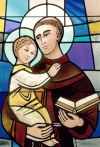 |
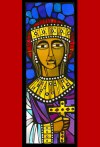 |
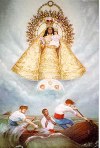 |
 |
 |
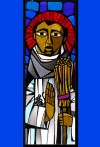 |
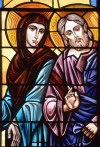 |
The last, perhaps least commonly used practice was to name your child with a unique, favorite name or an exotic, non-Cuban name. Thus you had a defiant Juana going against tradition and naming her daughter not Juanita but Lissette or Rebecca or Yvonne. The more avant garde, more enlightened folk favored even more exotic names, like the name Brizeida, for instance, or the name Zobeida. It was also common practice to give your child a first and middle name such as Rafael Alejandro or Carlos Alberto and even a third and fourth name as in the case of my aunt who was named Zoila Luisa Margarita. And let's not forget the Greek and mythological names like Aquiles, Minerva, Dámocles, and Espartaco; the Roman variety, such as Julio César, Marco Antonio, Livia and Octavio; the patriotic names like Lincoln, Patria, Libertad, and América after Amerigo Vespucci or Cristóbal after Christopher Columbus; and last, but certainly not least, as there was an over abundance of these on the island, the religious nomenclature, beginning with María, José and Jesús and ending with saints so obscure no one ever even heard of them. The name Jesús, which is extremely common in Cuba, is nonetheless frowned upon by American Catholics. I once worked with a guy whose parents had sent him over to the United States via the Peter Pan operation. He ended up in a Catholic institution where the priests and the nuns recoiled in sanctimonious horror after he informed them that his name was Jesús. They immediately advised him that the Lord's name was never to be used in vain and certainly not as a proper name for a boy or for anyone else for that matter, as there was only one Jesus. So they re-baptized him Jay, and to this day Jay he remains.
In all honesty though, even back then, you had your doozies! Terribly ugly and/or risible names like Anacleto. I remember a field hand who worked at my aunt's farm whose name was Zenobio, which always struck me as ghastly because it suited a horse much more than it suited this handsome, fair haired man. There were also your assorted Pancracios, Mamertos, Candelarios, Agapitos, Angustias, Venerandas, and Leopoldinas, which must have left a perpetually bitter taste in the mouths of the bearers of such ignominies.
Then there were names which seem innocuous enough in Spanish but which don't translate particularly well, such as Dolores which literally means pains. Thus Dolores Del Rio is actually Pains of the River and Luz Divina is actually Divine Light. The Cuban province of Matanzas translated into The Bard's language actually means Killings and the Cuban cities of Cienfuegos and San Antonio de los Baños are actually One Hundred Fires and Saint Anthony of the Baths. It has always befuddled me as to why anyone would name a province after a mass killing or a town after one hundred conflagrations or a saint who bathes, but that's Cuba for you. One thing is for certain, the bilingual can have a ton of fun playing with these translations.
And now we arrive at that fateful New Years Eve of 1958. After the communist takeover of the island, Cubans, besotted with Castro's promises of freedom, prosperity and equality, which sounds to me awfully like liberté, égalité, fraternité (the guy was, after all, a supreme connoisseur of world history and an expert in the art of knowing what makes your average Cuban tick) began naming their children after him. So those early years saw an ocean of Fidelitos pouring forth from the wombs of revolutionary cubanas who were ever so proud to name their first born after their patron saint, the father of their country, Fidel Castro Ruz. But they were not content to leave it at that. Entire families were named after The Monster. I knew a Marielito whose name was Fidel, his sister was named Fidelia and his other two siblings were Camilo Fidel and Ernesto Fidel, after guess who. True story. I kid you not. And, of course, there were infinite patriotic combinations of Fidel such as Fidel José (Martí and Castro) or Fidel Antonio (Maceo and Castro). The one that strikes me as hilariously and ironically incongruent and which denotes the duality inherent in most Cubans is Fidel Jesús, a combination of The Monster and Jesus Christ. Con Dios y con el diablo, as we Cubans say, with God and with the Devil.
After the island was full to capacity with little Fidelitos, Fidelitas and combinations thereof, a switch was made to Russian names. After the October Missile Crisis and Castro's coming out as a Marxist, the Russians replaced whatever the reigning deity of names happened to be at that particular point in time and the island began to worship everything Soviet. It is here that we begin to see the use of names like Lenin, Vladimir or Bladimir, Yuri (for Gagarin), Boris, Dimitri, Sergei and a host of other Slavic appellations. I find nothing wrong with this. I love Russian names myself, and my own mother's name is Olga, which is Russian. But Lenin as a first name is carrying the Soviet torch just a bit further than it need go and when your misspell Vladimir as Bladimir you're just spelling out your ignorance for the entire world to laugh at.
The years since the sixties have been witness to the steady decline of Cuban society. The entire country is in collapse. The natural resources have been depleted. The land has been irreparably raped and ravaged of its wonderful and exotic flora and fauna, and the moral fiber of its people has consistently eroded into near extinction. What is left, and this is especially true of the generations born with and after the revolution, is a nation of zombies devoid of morals, values, and the ability to differentiate right from wrong. In a society where daily struggle for survival is a priority, there is little time for principles, niceties, or manners. Whatever happened to liberté, égalité, fraternité?
|
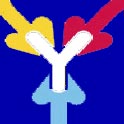 |
Cuba today is a country where anything goes. After fifty years of being silenced and rationed, the islanders have found that there is precious little that is free, or, as they say in their lingo, por la libre, in Castro's Cuba. Mainly cigarettes, liquor, and sex. In a country where hardly anyone works for a living, there is plenty of time to indulge in all three. So everyone smokes, alcoholism abounds, and every one partakes in some form of sex or another, whether it be heterosexual, homosexual, bisexual, bestial, for sale, licit, illicit, or any other kind. Adult male and female prostitution is rampant. Child prostitution is also. The porn industry has found there a haven for the filming of hot Cuban men, women and children engaged in all sorts of
|
sexual activities and aberrations. Indeed, the porn industry is one of Cuba's healthiest and most flourishing enterprises. Also in a very healthy state is Ignorance. Ignorance of the free world and its affairs, ignorance of art and music, ignorance of self, and, sadly, ignorance of one's own chosen métier. The much touted Cuban doctors know nothing about medicine, the engineers know nothing about engineering, and the much hyped illiteracy campaign, if one is to judge by the letters one receives from the people inside the island, failed miserably. When titled Cuban professionals misspell basic Spanish words and cannot put coherent sentences together you know the country is in trouble. Regards to Tía Holga, they will write, spelling my mother's name with an H. And no one on that damned island says haya, everyone says haiga, which reminds me of a childhood poem I once knew**. So much for La Alfabetización!
|
So what is left for a Cuban inside the island to do, one may ask? Well, one can start by discarding the Spanish language altogether and developing one's own revolutionary patois, which is exactly what they have done. In this dialect of the lumpen words like asere, consorte, monina, mi socio, and que volá, uttered with the proper street savvy, gusto and inflection acquire a degree of vulgarity and an odor of the sewers one never imagined possible. Besides, the new Cubans have added completely new terminolgy to the lexicon. Fabulously descriptive words such as jinetera, pinguero, yuma, fula, no es fácil, and my own personal favorite, RESOLVER. The new Cubans have given the verb resolver a meaning that La Real Academia de la Lengua Española could never have envisioned, not even in their wildest nightmare. When it comes to altering the language, they're like Caribbean Auntie Mames showing Patrick things he never dreamed existed.
Which brings us full circle to THE Y PHENOMENON. What they have done for the Spanish language they have also done for names. Proper Cuban names redesigned, re-imagined and re-mastered like some old LP converted into a state of the art MP3. There are today, as in days of yore, three common practices to achieve these results: the combining of the father's and mother's name into one, the totally bizarre invention, and the Y babies. The first practice entails the combination of the mother and father's names or vice versa. Famous case in point is Elián González whose name is the combination of Elizabeth (mother) and Juán (father), thus Elián. This method, though, can yield unwanted results. For example, the child of Cuco and Lola would have to be named Culo, Culito for short. Inocencio and Dorotea would beget Inodoro, Teodoro and Tamara would have to name their little girl Teta, and even worse, Mónica and Jonás would be forced to name their little boy, heaven help us, Mojón. You get the picture. So arriving at your child's name via this procedure can be quite treacherous and is, at best, not recommended, and, at worst, to be proceeded into with extreme caution.
The second practice is to give your child as bizarre a name as you can possible come up with. Just let your imagination run wild. This includes little gems like Amry, Dagnisel, Mingrelia, Migdoel and Norje. My fingers ache from typing such letter combinations. The one peculiar thing about these names is that they often sound like medications or incurable diseases. I feel much better since taking Daysiurami for my joint pain, don't you? Dalixia has done wonders for my erections! It's the best thing for impotence on the market today! I have chronic Marysleisis, but my doctor put me on intense Kirenia therapy and I feel better already! In a defiant slap in the face to El Máximo Líder some fearless, innovative, and spectacularly genial Cubans have decided to bravely salute, validate, and embrace the enemy by giving their child a name that reflects their own twisted version of Americana, and so we have Cubans named Usmaíl (US Mail) or Usnavy and its variant Yusnavy (US Navy). The possibilities for this are infinite and set your mind reeling as you envision happy, peppy little Cuban children named Makdonal, Berguerquin, Jondipo, Meisis, Uolmar, and last but certianly not least, Yupepsi, which would have made Joan Crawford ecstatic!
And so we come to the Y names. Those diamonds in the raw such as Yaismelaidi, Yaquirelis, Yequisleydis, Yolidurky, Yulismilsy and Yumisisleydis. Quite a mouthfull, no? Well, guess what? I have no idea where in damnation they came from. I told you I was no etymologist! Why did these ignoramuses pick the letter Y to run amok with? Why not X or Z? Beats me! I haven't a clue. Your guess is as good as mine. Is this their own subversive way of rebelling against Papá Fidel? Their way of saying you may control everything else in my life, but you can't control what I name my child, so I'll give it any name I damn well please? I don't know. I don't think they're subversive enough for that. Who knows? Who's to say? What I do know for certain is that, for better or worse, all assessments lead to the same conclusion: These people mean business! They intend to overpopulate our planet with little Y monsters and, so far, they're doing a pretty good job of it. They're here! They're weird! Get used to it!
Polly Chinela,
Miami, August 2008
**A POEM FROM MY CHILDHOOD:
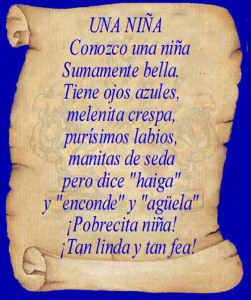 |
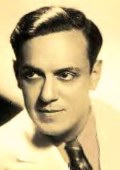 |
You are listening to Cuba's greatest composer,
Maestro Ernesto Lecuona (1895-1963),
playing his own compositions Danza Lucumí, Crisantemo, and En Tres Por Cuatro.
These recordings were made by RCA Victor in New York City in June 1954
|

* To listen to Lamento Cubano in the wonderful voice of Esther Borja, Cuba's supreme cancionera,
go to the GALLERY page.
|